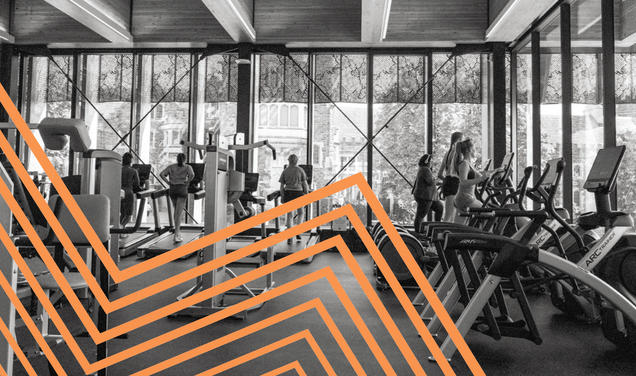
In the vision of Andrew Fleming West 1874, first dean of the graduate school, graduate study was to occupy its own distinct place in the life of the University. It is because of this vision that the Graduate College, built to nurture a residential academic community, is set apart from the central campus. In a place with such reverence for its traditions, it is then quite a surprise that the graduate students of today find themselves in scattershot living arrangements across town and campus.

Walker Hall, a former undergraduate dorm, is now home to at least 40 graduate students. Princeton guarantees its first-year doctoral students accommodation, and University spokesman Ahmad Rizvi told The Daily Princetonian that “larger-than-usual numbers of graduate students” renewed their housing contracts this year. Graduate enrollment has also grown, adding more than 500 students in the last 10 years. Walker seems to be a poor choice for anyone’s accommodation: It faces an active construction site, the future Hobson College. These conditions evince a mismatch between Princeton’s expectation of graduate housing demand and its realization.
In years prior, Princeton has offered a soft guarantee of housing to second- and third-year doctoral candidates through spare capacity afforded by the Lawrence and Lakeside housing complexes. In addition, the housing office has usually extended housing offers to some portion of the housing waitlist. This year, the office extended offers to precisely zero people on the waitlist. (I can confirm this because I was the unfortunate holder of waitlist spot No. 1. I have since found outside accommodation, albeit at cost.)
For graduate students, the solution should be clear: Go onto the off-campus market. Certainly students of similarly placed universities do this. While such a scenario would be an unfortunate occurrence in New York, Boston, Chicago, or the Bay Area, it would also be one that could be managed reasonably. So what makes Princeton more difficult?
Prices are similarly high in Princeton (something that startled me after being an undergraduate in Manhattan). The average monthly rental for a studio is $1,800. A one-bedroom is over $2,300. A two-bedroom is almost $2,900. And since 2019, prices have been rising at a rate much higher than overall inflation, according to data shared by the University. A doctoral student at Princeton earns a little under $3,800 a month after taxes. It does not take an accountant to see how these figures can induce financial anxiety.
But the Princeton market is unfriendlier than bigger cities. Princeton has a small rental inventory (one on the same order of magnitude as the graduate population itself). And suburban Princeton lacks extensive public transportation networks. This either constrains one’s choice of location or forces one to buy a car. Both add costs.
One solution is for Princeton itself to fill in the gap, and the University clearly recognizes this. The Meadows Graduate Housing complex south of Lake Carnegie will add nearly 400 units and will go some way to filling this need. So what are the remaining qualms? The most obvious one is that Princeton will likely still fall short of guaranteeing doctoral students housing. Even after the Meadows addition, the University will have 2,445 beds for graduate students, Rizvi told PAW. As many as a quarter of graduate students may still have to seek accommodation off campus. A second point is more subtle: The new complex opens in January, four months after off-campus students have likely entered 12-month leases.
Housing might seem like a mundane issue compared to the consequential ideas and research that emerge from this place of the mind, but the mundanities of student life, in aggregate, are quite meaningful. Whether they lie in chance encounters in an apartment hallway, an hour or two of sleep in the morning, or plainly, in a few hundred dollars each month in saved rent, each has some small (but measurable) impact on the life of a student — and, taken together, a profound effect on the student’s life and work. For the growing graduate student body, more careful consideration of housing stock and costs by the University could make a meaningful difference.








0 Responses